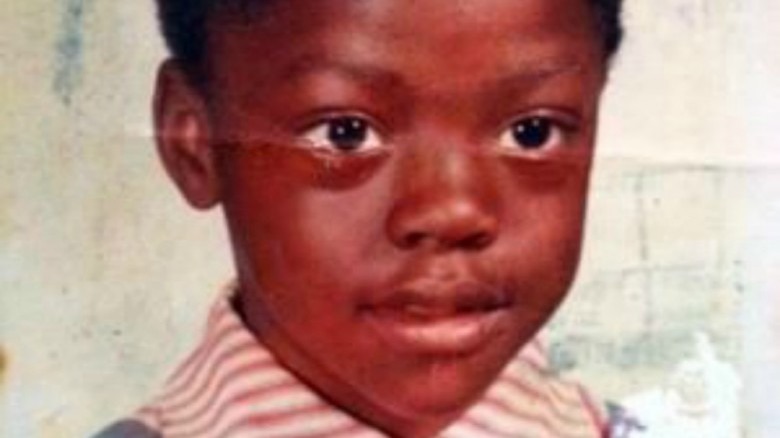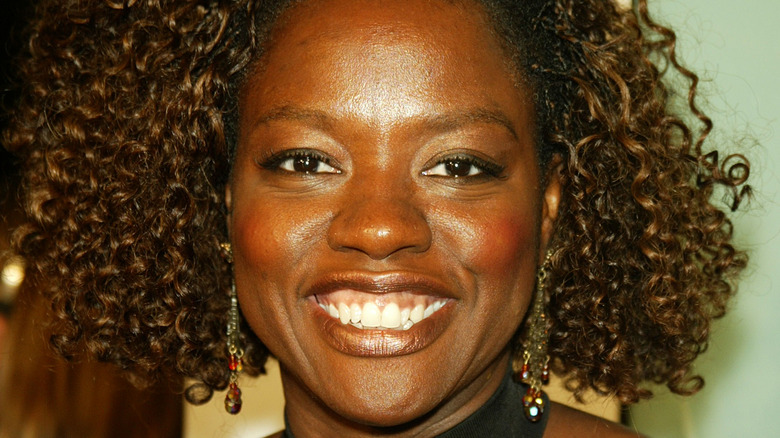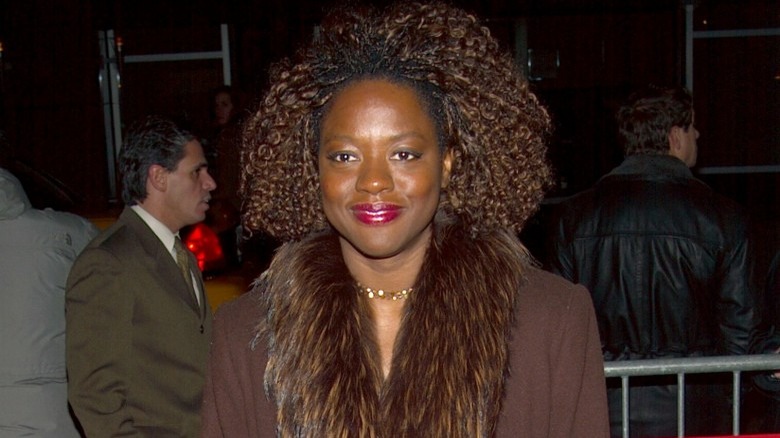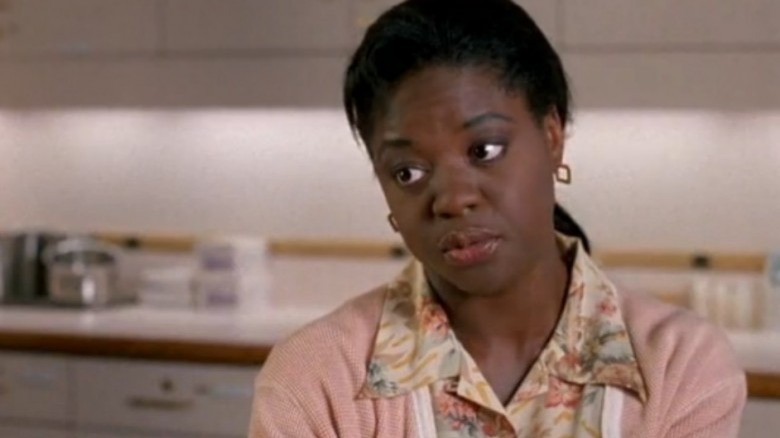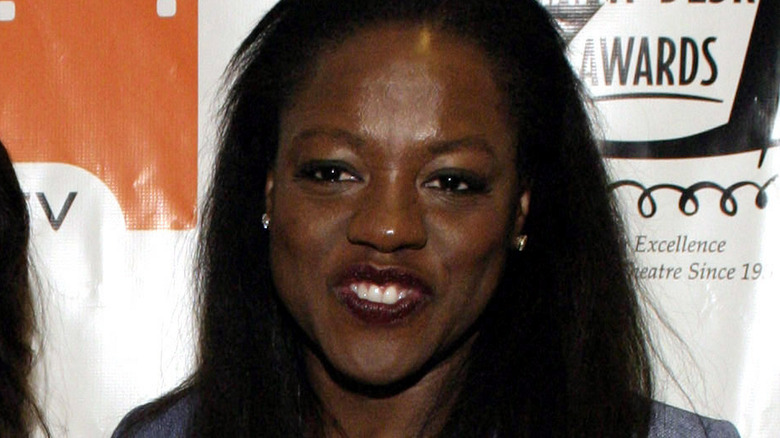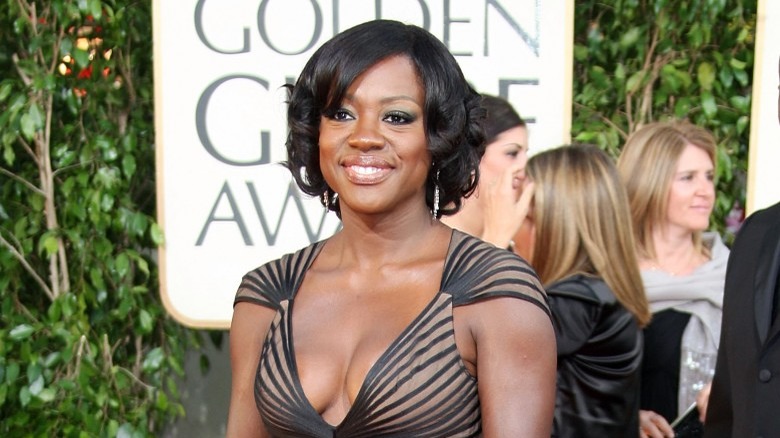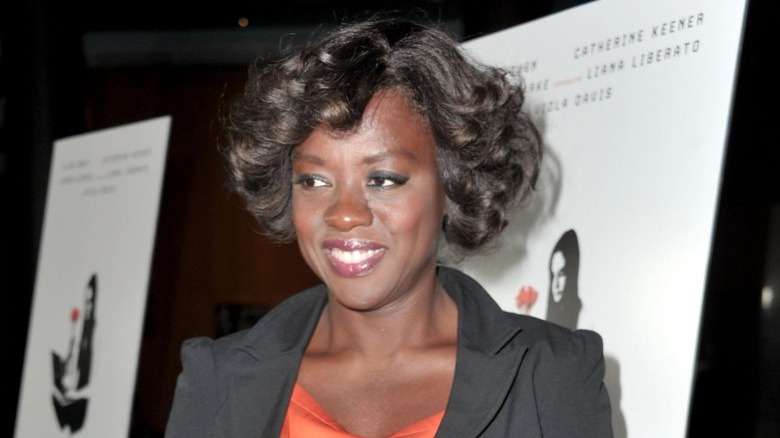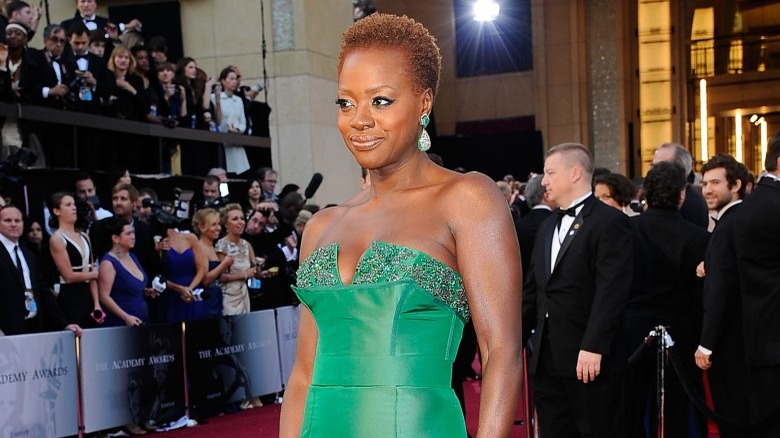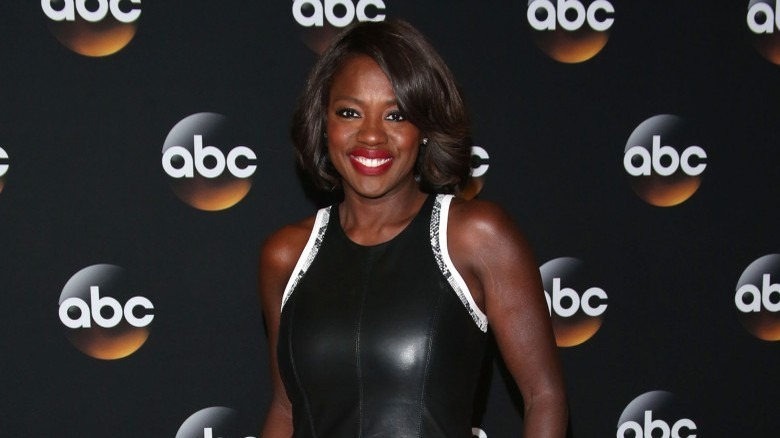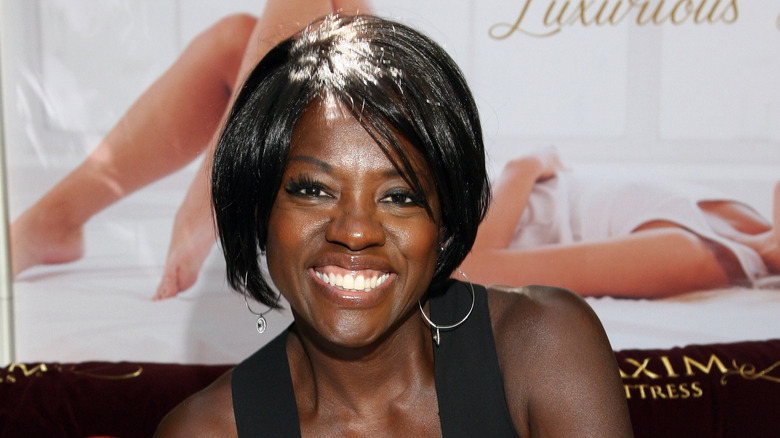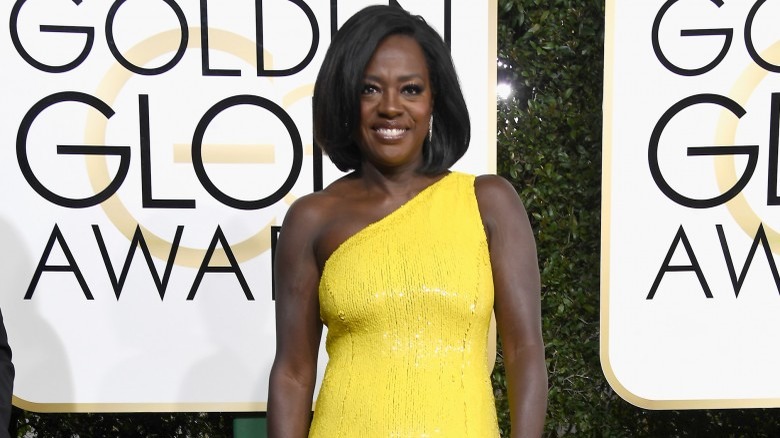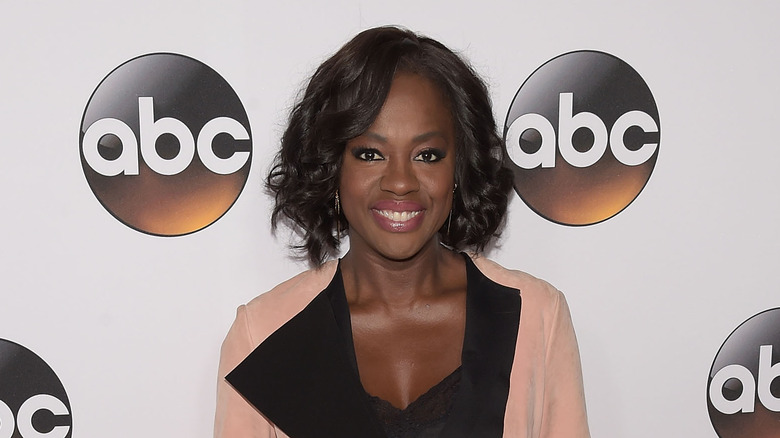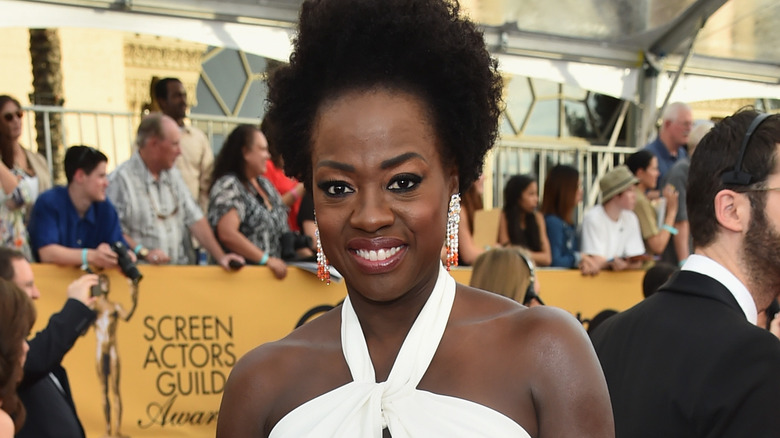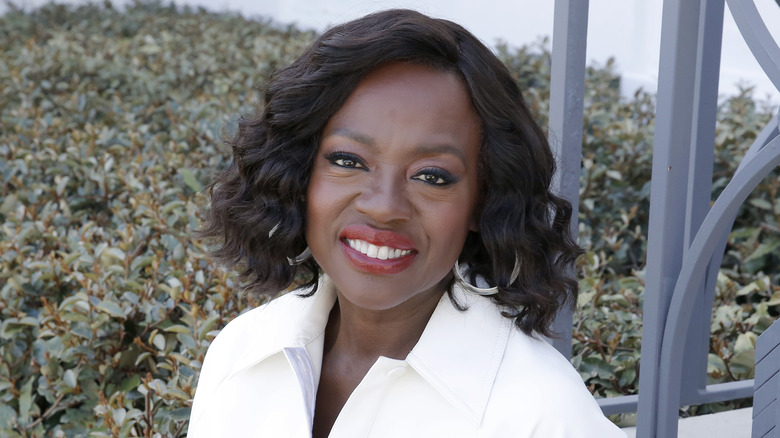The Stunning Transformation Of Viola Davis
intro
Viola Davis has emerged as one of the most important and influential working actresses today, thanks to her mastery of many performance mediums and her transcendent style choices, as well as her compelling awards season and awareness speeches. Davis has come a long way since her difficult youth, and while her rise to Hollywood fame and acclaim might seem meteoric, she spent many years quietly slaying her way to the top until she got her long overdue big-screen breakthrough. Here's a look back at the stunning transformation of Viola Davis.
Growing up fast
Viola Davis has shared a lot of tough truths about her youth over the years, and, in hearing her personal history, it's not hard to understand why the actress oozes such natural resilience in her work. Davis was born on a former plantation in St. Matthews, South Carolina in a home that had no running water. Her mother was a maid, her father was a horse trainer, and Davis was the fifth of six children in the family. The Davis clan relocated to Central Falls, Rhode Island shortly after her birth, suffering through extreme poverty throughout her early life.
She told the crowd at Variety's Power of Women luncheon in 2014, "Although my childhood was filled with many happy memories, it was also spent in abject poverty. I was one of the 17 million kids in this country who didn't know where the next meal was coming from, and I did everything to get food. I've stolen for food, I've jumped in huge garbage bins with maggots for food. I have befriended people in the neighborhood who I knew had mothers who cooked three meals a day for food. And I sacrificed a childhood for food — and grew up in immense shame." Because of her first-hand experience with destitution, Davis has since become a vocal advocate for Hunger Is, an organization that provides breakfast to millions of children in need.
Inspired to shine
Despite her inauspicious beginnings, Viola Davis' ambition to act came along early in her life when she witnessed Cicely Tyson's Emmy-winning title performance in The Autobiography of Jane Pittman in 1974. She told Dallas' WFAA 8 news station, "I saw that performance in the midst of that apartment that was infested with rats and had no plumbing and no telephone. It was literally like the birds stopped chirping, she walked into my heart, and I had that physical manifestation of a dream." Given her precarious circumstances, it may have been easy for Davis to chalk up her ambition as unachievable, but her sister encouraged her to aspire for the performing arts programs in her area, saying, "You have to decide right now what you want to be because that's the only way you are not going to be poor."
Davis eventually achieved a degree in theater at Rhode Island College in 1988 and then attended the prestigious Juilliard School, from which she graduated in 1993. She's since gotten to share the screen with Tyson, whose performance inspired her career path so many years before. Not only did they work together on The Help (2011), but they actually costarred several times in Davis' hit TV drama How to Get Away with Murder, after Davis convinced producers to hire Tyson to portray her mother on the show.
Taking the stage
Before her film and television accolades started pouring in, Viola Davis' earliest esteem came from her work in theater. She first starred in the 1996 Broadway production of Seven Guitars before taking on several off-Broadway productions, one of which would add the first trophy to her display shelf.
She won an Obie Award in 1999 for her work as the title character in Everybody's Ruby and was also nominated for a Tony Award for that performance. After that, Davis' work on stage began to dominate. She soon nabbed the role of Tonya in the 2001 Broadway production of King Hedley II, a role which would earn her a Tony Award for "Best Featured Actress in a Play" that year. At the same time, her screen career was just beginning to lift off, as well.
Big screen beginnings
While it would take years for Viola Davis' formidable screen presence to receive as much recognition and reverence as her stage work, she earned her Screen Actors Guild membership card right around the same time she was getting started on the Broadway circuit. The actress revealed to TV Insider that her first cinematic role was a one-day appearance in The Substance of Fire (1996) as "Nurse."
"I had to pass [Timothy Hutton a vial of] blood, and I got paid $518. I did my first take and thought, 'Oh my God that was so easy!'" she remembered. "I started taking off my wardrobe and they said, 'You're not done.' I said, 'This is going to be hard work for $518 — you got more money? But it was fabulous. I thought I had made it."
Small screen start
Viola Davis' television career began to take flight after that as well, with her landing small roles in series like NYPD Blue and New York Undercover in 1996. After a series of cameo parts and TV movie roles, Davis landed her first recurring part in the 2000 CBS medical drama City of Angels, in which she starred again as a nurse. Although the hospital-centric series would be short-lived, the show would impact her life forevermore: it was the set on which she would meet her eventual husband, Julius Tennon.
As she recalled to People, the two first connected after doing a scene together and hitting craft services for a bagel. "He was like 'Hey,' because we had just [done] a scene. The only thing I thought was, 'He's good looking. He's really good looking.'" Who knew a bagel bar would be such a matchmaking hotspot? Call it a holey union.
Breaking out with Doubt
Although Viola Davis had certainly proven her merits by this time, she would become a household name in 2008 with her masterful performance alongside Meryl Streep, Philip Seymour Hoffman, and Amy Adams in Doubt. Davis' work in the film would earn her not only a slew of nominations and wins — including her first Oscar nod for Best Supporting Actress — but it also established her as a force majeure in films, on par with some rather formidable castmates.
Streep, in particular, was taken by Davis' talents, lapping praise on her costar at Davis' Walk of Fame ceremony in January 2017, saying, "Viola Davis is possessed. She is possessed to the blazing, incandescent power. She is arguably the most immediate, responsive artist I have ever worked with. She's so alive, she glistens. She plants herself in a scene where she has no words and she writes paragraphs with her eyes. She's a force of nature — and she's the most generous, present person I know. She has earned every step on the ladder to the leadership position she now enjoys in this business." Considering they had only worked together in a single film, Davis really must have made an impact on her co-star. Perhaps even more importantly, Davis also made a lasting impression on audiences, while enjoying a serious uptick in starring role opportunities.
Championing another cause
In 2010, Viola Davis appeared in David Schwimmer's Trust, about a young girl who is sexually assaulted by an online predator. The movie was built upon Schwimmer's years-long affiliation with The Rape Foundation, the founder of which was portrayed by Davis in the movie. The experience of starring in that film, as well as her own real-life experiences with sexual assault, inspired Davis to become an advocate for the organization. She told attendees of a fundraiser for the organization (via CBS News), "Myself, my mother, my sisters, my friend Rebecca, my friend from childhood, we all have something in common: We are all survivors of sexual assault in some shape or form." She then shared the harrowing story of how her own sister Danielle was assaulted at just 8 years old by a habitual assailant whose punishment was minimal. And that her sister had — perhaps as a consequence — suffered a life of addiction and prostitution.
The organization provides medical, counseling, and legal services to victims of sexual crimes. Davis delivered a powerful speech on their behalf, saying (via People), "Living out loud is not playing Annalise Keating on How To Get Away With Murder, it's not being Amanda Waller in Suicide Squad, it's not getting an Oscar. Living out loud is living a life that's bigger than yourself. Living out loud is long after you're gone – and trust me, everyone in this room, you're going to be dead a lot longer than you're alive even if you live to be 100 years old — you leave something on this Earth that's bigger than yourself. And that's a big message in this town."
Baring her (real) hair
In 2012, while Viola Davis was making her second round on the major movie awards circuit for her work in The Help (2011), she decided to bare even more of her true self to fans by ditching her traditional wigs and showing off her natural hairstyle on the red carpet. Although her friend and former co-star Meryl Streep went home with the trophy that night for her work in The Iron Lady, Davis remained a stone cold winner for her inspiring au naturel look, and she would default to that look on many occasions afterward as well.
The decision to skip the wig, she told InStyle, came at the suggestion of her husband. "My husband wanted me to take the wig off," she explained to the magazine. "He said, 'If you want to wear it for your career, that's fine, but in your life wear your hair. Step into who you are!' It's a powerful statement." Not only was it powerful and exhilarating to witness, but it would also inform some of her most pivotal career moves going forward.
Murder in Shondaland
Given her ascension into Hollywood ubiquity, it was only a matter of time before Viola Davis would land her own starring role on the small screen as well, and what a role it was.
Davis was tapped to headline Shonda Rhimes' suspense drama How to Get Away with Murder, happily accepting the role on one condition: That she be able to shed the wig once again on-screen at some point during the series. She did so in the fourth episode of the inaugural season, when she slowly wiped away a meticulously designed facade of hair and makeup in front of the cameras.
Davis told For Your Consideration audiences in 2015 (via Vulture), "Before I got the role, I said ... 'I'm not gonna do this unless I can take my wig off.'" Davis added that she'd grown weary of the television scene always showing women in a certain, fixed-up light and that she wanted to make sure her portrayal accurately represented a no-makeup reality for women.
"I wanted to see a real woman on TV. I wanted to see who we are before we walk out the door in the morning and put on the mask of acceptability ... It felt like who [Annalise] was in private had to be diametrically opposed to who she was in public. And so in order to do that, I felt like I had to physically take the wig off ... For me, that simple act really surmounted to something very powerful in the end, because what it was, was someone being very, very private in public, which is absolutely the cornerstone of what we do as artists."
Here comes the bride (again)
Viola Davis and her husband, Julius Tennon, have been married three times. They were originally married in 2003, at which time she wore a simple Express skirt to her ceremony. According to InStyle, they then renewed their vows — not once, but twice. The second vow renewal ceremony in 2016 was a much more high-profile event than the former one. "I wanted an experience of feeling alive. There's no better way to feel what life is truly about than the birth of a child and getting married to someone you love — really love. It's a reminder. A wake up. My career is about success but my marriage and my life is about significance," she explained of her decision to re-wed Tennon, with whom she shares daughter Genesis, born in 2011.
In addition to having an A-list guest list — including Oprah Winfrey and her HTGAWM co-stars — she also stunned in a luxuriously custom Carmen Marc Valvo gown that she described as ideal for her body type because, "It accentuates my waist. It's dramatic, timeless, and romantic. I wanted something that made a statement when I walked in the room but also that didn't look like I was trying too hard." Little Genesis wore her own white designer gown to match her parents, too.
Today, she's a symbol of hope
For Viola Davis' return to the awards circuit in early 2017 for her stunning work in Fences, a film adaptation of the August Wilson play (in which she also starred alongside Denzel Washington in 2010 and won a Tony Award), she opted for an optimistic visual appeal that was meant to send a positive message to her supporters and brighten up the political climate of now.
Her stylist Elizabeth Stewart told The New York Times that by choosing vibrantly colored and playful red carpet attire like the aqua Michael Kors gown she wore to the Critics' Choice Awards and the yellow gown she donned to accept her Best Supporting Actress win at the 2017 Golden Globe Awards, she "wanted to be a symbol of hope in dark times" and "wanted to be strong, simple, and bold." Davis' aesthetic, while meaningful, is also not fussy, according to Stewart. "She likes fitted, clean and graphic ... there's not a lot of agonizing over choices with Viola." Sounds like Davis doesn't have to be a diva to be fabulous.
In 2017, Viola Davis won her first Academy Award
Viola Davis finally received the recognition long due to her in 2017, when she accepted the Academy Award for best supporting actress for her work in the critically lauded film Fences. Previously she'd been nominated for the same category for her work in Doubt alongside Meryl Streep and Philip Seymour Hoffman and for the category of best actress in a leading role for her starring role in The Help. But 2017 was her first time receiving an Oscar.
Davis dazzled as she accepted the Oscar, taking the time to tearfully praise the acting profession for treasuring the importance of storytelling. "I became an artist, and thank God I did because we are the only profession that celebrates what it means to live a life," she proclaimed in her acceptance speech. She also praised her co-star, the legendary Denzel Washington.
Davis closed the speech by celebrating her family who were in the audience that night. "You teach me every day how to live, how to love," she continued. "I'm so glad that you are the foundation of my life."
Viola Davis bid farewell to Annalise Keating
After six seasons starring as Annalise Keating in the hit series How to Get Away with Murder, Viola Davis bid farewell to a character she'd gotten to know intimately. "I'm feeling a little emotional and I didn't think that I would," she confessed in an interview with The Grio. "After six years, sometimes you're so exhausted and ready to go." She added that she was proud to subvert the stereotype that only white women can be the leading lady, and she deemed that the legacy of the role.
For however bittersweet the departure was, Davis had some pretty exciting projects to look forward to, including portraying former first lady Michelle Obama in the series First Ladies. "I have met Michelle Obama twice and we're certainly representing her beautifully," she told Refinery29. "There is something about her... she's perfect."
Davis also signed on to serve as an executive producer for the series, which delves into the personal and public lives of first ladies throughout history.
This is what Viola Davis would say to her younger self
With so many accomplishments already behind her, Viola Davis could easily rest on her laurels and enjoy a life of ease. But there's presumably still a lot that Davis wants to do in her career and in her personal life. But at this stage in life, what exactly would Davis say to her younger self? "I would tell her that she was enough," she stated.
"Until recently, someone told me, 'Maybe you need to let the little girl heal you at 54. Maybe you need to allow the little girl to be excited at the 54-year-old she gets to become,'" she revealed in a 2019 interview with People. "Because actually, she did pretty good."
Davis acknowledged just how extraordinary she is and that she should be proud of both the woman she is and the little girl she once was. "She was a survivor. She got out of it," she continued. "And it makes me look at my past completely differently when I see that."

